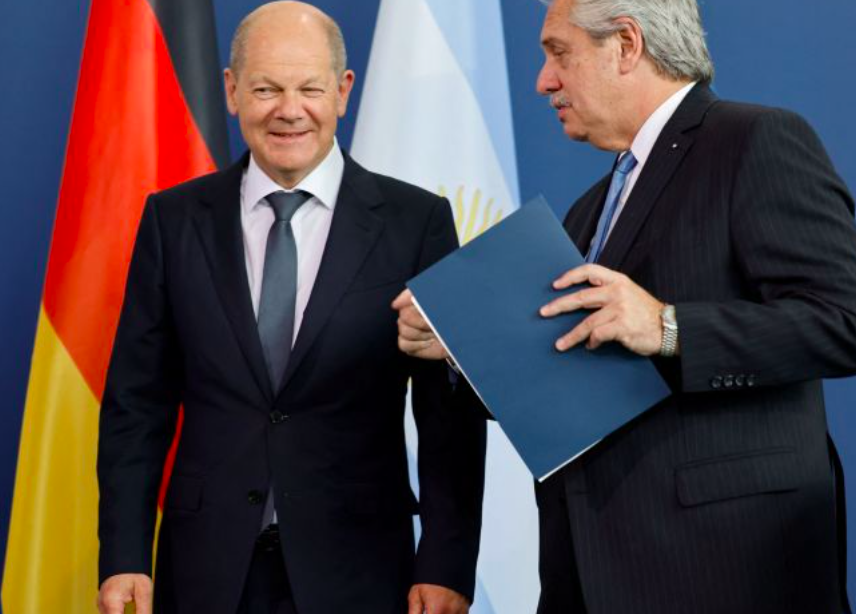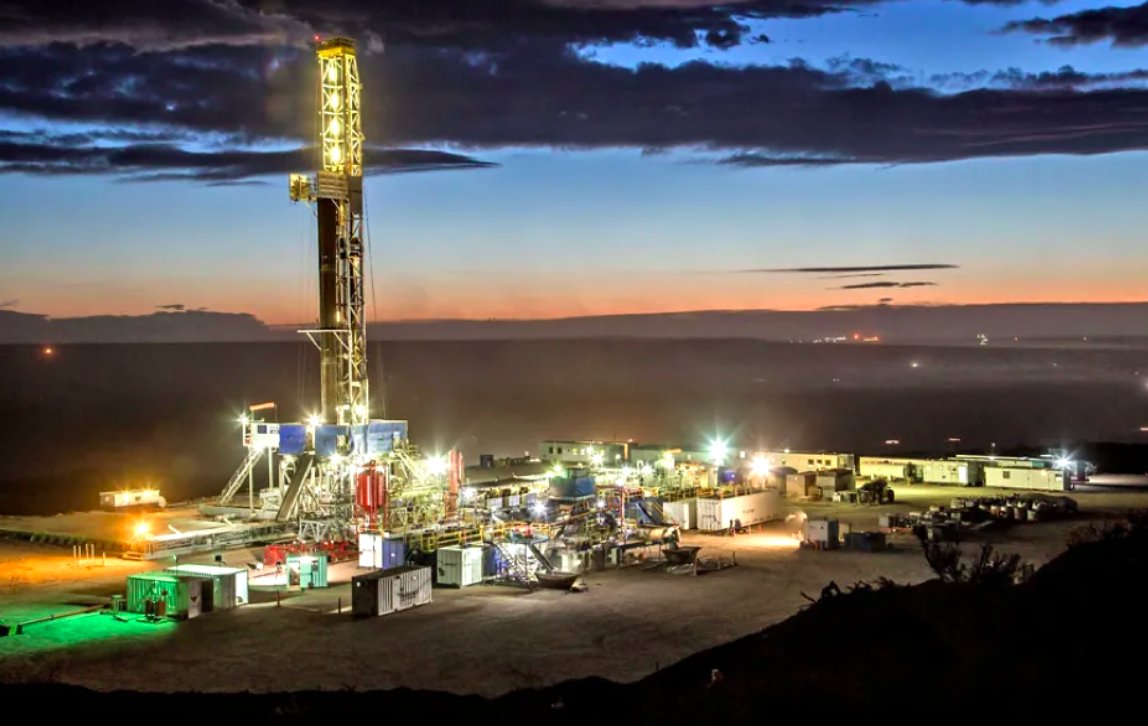RIO DE JANEIRO, BRAZIL – Argentina has a buried treasure in Vaca Muerta, the world’s second largest unconventional gas reserve, but it requires strong investments for the massive development of this formation and, in addition, gas transportation and liquefaction infrastructure that will allow it to make its dream of be a world-class player.
On a tour of Europe in serious trouble to ensure future gas supplies due to Russia’s invasion of Ukraine, the president of Argentina, Alberto Fernández, highlighted this week in Spain and Germany the energy potential of the South American country.
Read also: Check out our coverage on Argentina
“Argentina today is a reservoir of what the world is demanding in this present. We are great producers of food and energy. We have the second unconventional gas reserve that we want to serve to supply the world in the form of liquefied gas,” Fernández said Wednesday at a press conference with German Foreign Minister Olaf Scholz.

The gas in abundance – “for 200 years”, as Fernández recently said – is in the depths of a vast formation of unconventional hydrocarbons that extends through four provinces of Argentina, with its epicenter in Neuquén (southwest), and that in a decade of activity has reached a massive development of only 7%, so its potential is enormous.
MORE GAS, BUT WITH LIMITS
Vaca Muerta, which also houses the world’s fourth largest unconventional oil reserve and where 31 local and multinational companies operate, received investments in 2021 for some US$4 billion and disbursements this year are expected to amount to about US$5 billion.
Last year, investments focused on gas, driven by a plan by the Fernández government that gave strong incentives to companies in this segment.
The Gas.Ar plan bore fruit: Vaca Muerta reached production records, with a mark of 69 million cubic meters per day of unconventional gas last March, already representing 55% of all the gas produced by Argentina.
But the growing production has run into a serious obstacle: the capacity of the gas pipelines that leave Vaca Muerta are already at their maximum level of use and, if it is not expanded, there is nowhere to evacuate more production.

THE KEY GAS PIPELINE IN ARGENTINA
To overcome this obstacle, the Government plans to imminently launch the tender for the construction of a new gas pipeline from Vaca Muerta and the expansion of the existing network, a work whose first stage will require an investment of US$1.5 billion and that the authorities They hope to have it finished by the southern winter of 2024.
The work, which in a second phase will require additional investments of 1,900 million dollars, is considered by both the Government and the private sector as strategic, necessary and, certainly, urgent: sitting on enormous gas reserves, Argentina, today , needs to import natural gas from Bolivia and liquefied natural gas (LNG) from various parts of the planet to supply domestic demand, particularly in winter.
This, with an enormous fiscal cost for the State, now increased by the high international prices of energy, at a time when Argentina, with strong macroeconomic imbalances, needs to improve its public accounts and shore up foreign exchange earnings.
The ultimate objective of Argentina is not only to lower the import bill but to become a net exporter of gas, with larger shipments to Chile, reaching Brazil with a pipeline and making the leap to global markets through production and export. of LNG.
INVESTMENTS IN LNG
In order to supply the extra-regional market, Argentina will require strong additional investments in liquefaction plants for the export of LNG by means of ships.
The Argentine government calculates that investments in LNG will be needed for some US$10 billion with the objective of reaching exports from 2027 of US$15 billion per year.
The Argentine Minister of Economy, Martín Guzmán, has maintained intense contacts in recent months with companies in the sector with a view to developing this segment and, in addition, has announced that the Government is preparing to modify certain regulations in order to attract greater investment in energy.
“If we want to have a development of another magnitude in this sector, it is very important that there is capital of scale and this requires completing domestic capital with foreign capital, because it is not enough,” said Guzmán when speaking to businessmen last week.
Guzmán anticipated that “robust and stable game rules frameworks” will also be built, seeking to articulate a law project to encourage the production of LNG.

